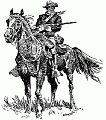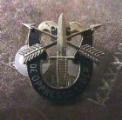
Originally Posted by
Norfolk

1. The Great Generals:
First Tier: Tiglath-Pileser III, Cyrus the Great, Qin Shi Huangdi, Sala' al-Din, Ghenghis Khan, Subutai, Tamerlane, Wellington, von Moltke, Slim.
- Second Tier: Hattusili, Darius the Great, Alexander the Great, Scipio Africanus, Pompey, Julius Caesar, Arminius, Diocletian, Belisarius, Charles Martel, Charlemagne, Basil II, Henry V, Mehmet II, Ivan the Terrible, Gustavus Adolphus, Marlborough, Napoleon, Davout, Sherman, Kirby-Smith, von Manstein, Kesselring, Liu Bocheng, Templar, Dayan.
-Third Tier: Sargon the Great, Thothmoses III, Hannibal, Attila, Kutusov, Toussant L'Ouverture, Lee, Stonewall Jackson, Grant, Nathan Bedford Forest, Byng, Monash, Currie, Wavell, Freyberg, any number of WWII German generals, Patton, Ridgeway, Giap, Sharon.







 Now you actually walked, talked, and worked with a Great General, DePuy. What, according to your observations, were the outstanding traits of Great Generalship that DePuy himself had?
Now you actually walked, talked, and worked with a Great General, DePuy. What, according to your observations, were the outstanding traits of Great Generalship that DePuy himself had?




 ) I'm surprised to see few mentions of him on this thread.
) I'm surprised to see few mentions of him on this thread. 



Bookmarks